Less than two weeks since taking office as Chinese Nationalist Party (KMT) chair, people are already asking how long Cheng Li-wun (鄭麗文) will remain in office. She is already mired in controversy, both inside and outside the party.
It is not an unreasonable question. This century, only three of 15 KMT chairs have served full terms: Lien Chan (連戰, 2000-2005), Ma Ying-jeou (馬英九, 2009-2014), and Eric Chu (朱立倫, 2021-2025). Six others won elections and subsequently resigned and another six served as temporary caretakers.
She won the party chair election last month, appealing to the party’s pro-unification base, military veterans and on a platform of generational change. Cheng secured 65,000 votes to win with 50.15 percent of the vote in a low-turnout election.
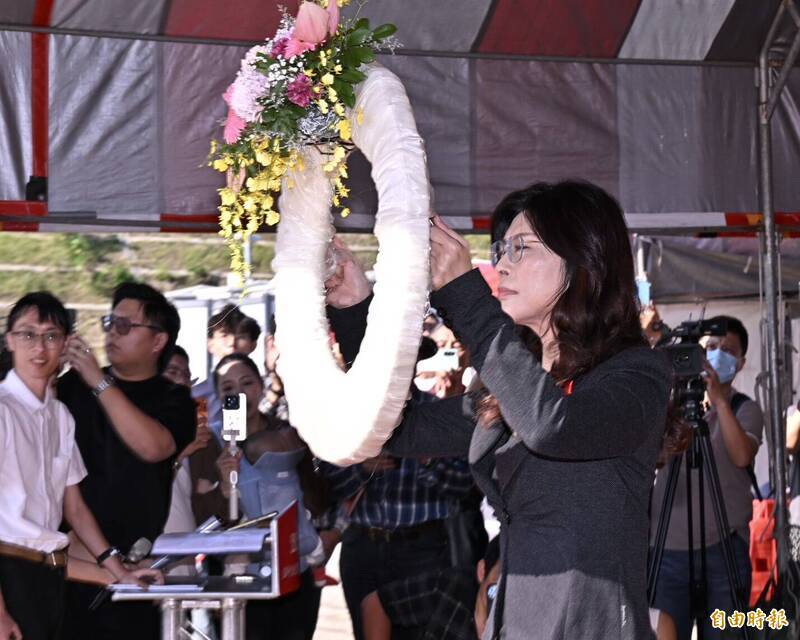
Photo: Tu Chien-jung, Taipei Times
After her win, her top staff picks surprised many, tapping party stalwarts — mostly men in their 70s — and attracted criticism for not living up to the promise of generational change. She defended her choices as the party needing people of all generations, but in practice this was probably a shrewd move to shore up her support with key players in the party and to help with her own lack of executive experience.
On the eve of her inauguration, a Deutsche Welle interview with her dropped in which she defended Russian leader Vladimir Putin as democratically elected, blamed NATO for the Ukraine war and expressed fears that under President William Lai (賴清德) Taiwan would become another Ukraine.
Cheng doubled down on her comments, to much unease within the party. When asked, most KMT politicians answered with a variation on “no comment.”
OFFENDING EVERYONE
What she did next is so controversial it appeared almost perfectly engineered to sabotage KMT party unity. At her inauguration, Cheng said the party is confident it can demonstrate unprecedented unity. She is off to a bad start.
Last Saturday, Cheng attended a memorial for victims of the White Terror in the 1950s at Taipei’s Machangding Memorial Park (馬場町紀念公園), where many were executed. Unlike the 228 uprising and subsequent massacres, the White Terror was disproportionately directed at those who fled the Chinese Civil War and arrived in and around 1949.
Generalissimo Chiang Kai-shek’s (蔣介石) KMT-led Republic of China (ROC) lost the civil war in large part to effective Chinese Communist Party (CCP) propaganda and infiltration within the KMT, breeding a network of spies, traitors and turncoats. The White Terror was a brutal purge intended to remove any and all Communists or anyone they even remotely suspected of being potentially sympathetic to the CCP cause.
The event was titled “1950s White Terror Autumn Memorial and Commemoration” (50年代白色恐怖秋祭追思慰靈大會), which has been organized by the pro-unification “Taiwan Area Political Victims Mutual Aid Association” (台灣地區政治受難人互助會) since 1999.
Beijing over the past few months has been on a big propaganda push, hosting a big parade and claiming to have played a significant role in the “Chinese People’s War of Resistance against Japanese Aggression and the World Anti-Fascist War” (World War II), and establishing a Commemoration Day of Taiwan’s Restoration commemorating the surrender of Japan on Taiwan in 1945.
As part of this push, Chinese state television launched a drama series, Silent Honor (沉默的榮耀), portraying Communist spies in the KMT as heroes, including most notably Wu Shi (吳石), a lieutenant general who was the ROC’s Ministry of National Defense’s deputy chief of the general staff, who among other things, provided the CCP with critical intelligence on KMT troop deployments in southeast China, southern China and Taiwan when the KMT government was based in Nanjing.
In the promotional materials to the press about the event provided by the organizers, Wu and the other spies in Silent Honor were mentioned. They were eventually caught and executed at Machangding in 1950, and their pictures were displayed at the event as “martyred heroes.”
It was also known in advance that people representing China’s Taiwan Democratic Self-Government League (台灣民主自治同盟) would be there. They are one of China’s eight nominal political parties that serve under the direction of the CCP.
It is not hard to see why many in the KMT would be horrified that their party leader was at an event, alongside representatives from a CCP-controlled Communist political party, honoring spies and traitors to the KMT cause — who were responsible for the defeat and deaths of countless ROC troops — as “martyred heroes.”
KMT politicians — including the normally taciturn Taipei Mayor Chiang Wan-an (蔣萬安) — distanced themselves and stated clearly they did not support this in any way.
SURVIVAL LIKELY SHORT-TERM
Could this lead to Cheng’s removal in the short term?
She defended herself by pointing out that she had never attended the event before, and that Wu Shi and the others had not been mentioned in their invitation to her. She said she was there to honor victims of political repression, not Wu or the others, which she said did not qualify as political victims.
It appears that she is correct about the invitation, and honoring victims of political repression — as opposed to executed spies and traitors — is a laudable act.
However, much of this was in the press the day before the event, which means that either she and her staff already knew, or are clueless at doing their jobs. Neither is a good look.
She has not apologized for any of it. That implies she feels she did nothing wrong, which rankles many.
To remove her in the short term would be extraordinarily difficult, and as long as she does not keep making these sorts of mistakes, she is likely secure in her job.
Many may be thinking of another pro-unificationist with whom Cheng is close and frequently compared to: Hung Hsiu-chu’s (洪秀柱) removal from the presidential ticket in 2015 after an outcry in the party. Could this happen now to Cheng?
Not likely. In that case, Hung was not the party chair. Cheng is the party chair, making it hard for the party to remove her.
Additionally, despite the party being eager to dump Hung as a losing candidate in 2015 because her pro-unificationist views were so deeply unpopular, they elected her party chairwoman just half a year later in 2016. Being unpopular with the public and likely to lose an election is one thing, what is popular inside the party is another.
NEXT YEAR’S CRUNCH TIMES
If Cheng continues on this path, things within the party could get serious next year in the late spring to early fall period as the 2026 local election campaigns start to ramp up. If her behavior is adversely impacting the candidates chances of winning, the situation in the party could get more serious.
Still, it is hard to oust a party chair, though not impossible. It would be an ugly process that could do as much harm as good.
A simpler path would be to sideline her.
As the 2018 local elections got into full swing then-party Chairman Wu Den-yih (吳敦義) appeared less and less at campaign events outside of Taipei and remote areas like Kinmen and Ilan. That year’s “Han wave” campaign rallies excluded or marginalized him.
The crucial test will be the results of next year’s election on Nov. 28. If the KMT does badly, Cheng would by custom be expected to resign.
Additionally, the party’s presumed nominee for president, Taichung Mayor Lu Shiow-yen (盧秀燕), will leave office on Dec. 25 next year, and there will likely be a push for her to take over as party chair, regardless of the results of the election.
While it is possible she could become so unpopular within the party she is ousted sooner, it is more likely that the big test will be late November and December of next year.
On the other hand, she may have learned from her recent mistakes, and things will go smoothly going forward.
But is that in her character?
Donovan’s Deep Dives is a regular column by Courtney Donovan Smith (石東文) who writes in-depth analysis on everything about Taiwan’s political scene and geopolitics. Donovan is also the central Taiwan correspondent at ICRT FM100 Radio News, co-publisher of Compass Magazine, co-founder Taiwan Report (report.tw) and former chair of the Taichung American Chamber of Commerce. Follow him on X: @donovan_smith.
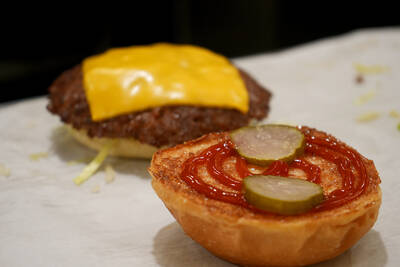
Taiwan can often feel woefully behind on global trends, from fashion to food, and influences can sometimes feel like the last on the metaphorical bandwagon. In the West, suddenly every burger is being smashed and honey has become “hot” and we’re all drinking orange wine. But it took a good while for a smash burger in Taipei to come across my radar. For the uninitiated, a smash burger is, well, a normal burger patty but smashed flat. Originally, I didn’t understand. Surely the best part of a burger is the thick patty with all the juiciness of the beef, the
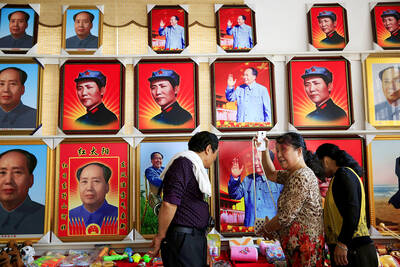
The ultimate goal of the Chinese Communist Party (CCP) is the total and overwhelming domination of everything within the sphere of what it considers China and deems as theirs. All decision-making by the CCP must be understood through that lens. Any decision made is to entrench — or ideally expand that power. They are fiercely hostile to anything that weakens or compromises their control of “China.” By design, they will stop at nothing to ensure that there is no distinction between the CCP and the Chinese nation, people, culture, civilization, religion, economy, property, military or government — they are all subsidiary
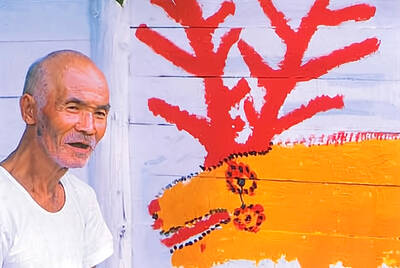
Nov.10 to Nov.16 As he moved a large stone that had fallen from a truck near his field, 65-year-old Lin Yuan (林淵) felt a sudden urge. He fetched his tools and began to carve. The recently retired farmer had been feeling restless after a lifetime of hard labor in Yuchi Township (魚池), Nantou County. His first piece, Stone Fairy Maiden (石仙姑), completed in 1977, was reportedly a representation of his late wife. This version of how Lin began his late-life art career is recorded in Nantou County historian Teng Hsiang-yang’s (鄧相揚) 2009 biography of him. His expressive work eventually caught the attention
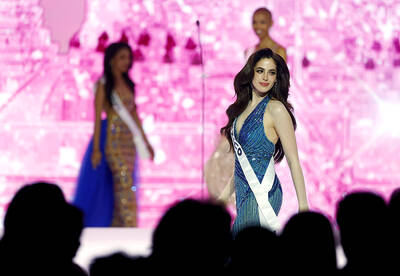
This year’s Miss Universe in Thailand has been marred by ugly drama, with allegations of an insult to a beauty queen’s intellect, a walkout by pageant contestants and a tearful tantrum by the host. More than 120 women from across the world have gathered in Thailand, vying to be crowned Miss Universe in a contest considered one of the “big four” of global beauty pageants. But the runup has been dominated by the off-stage antics of the coiffed contestants and their Thai hosts, escalating into a feminist firestorm drawing the attention of Mexico’s president. On Tuesday, Mexican delegate Fatima Bosch staged a